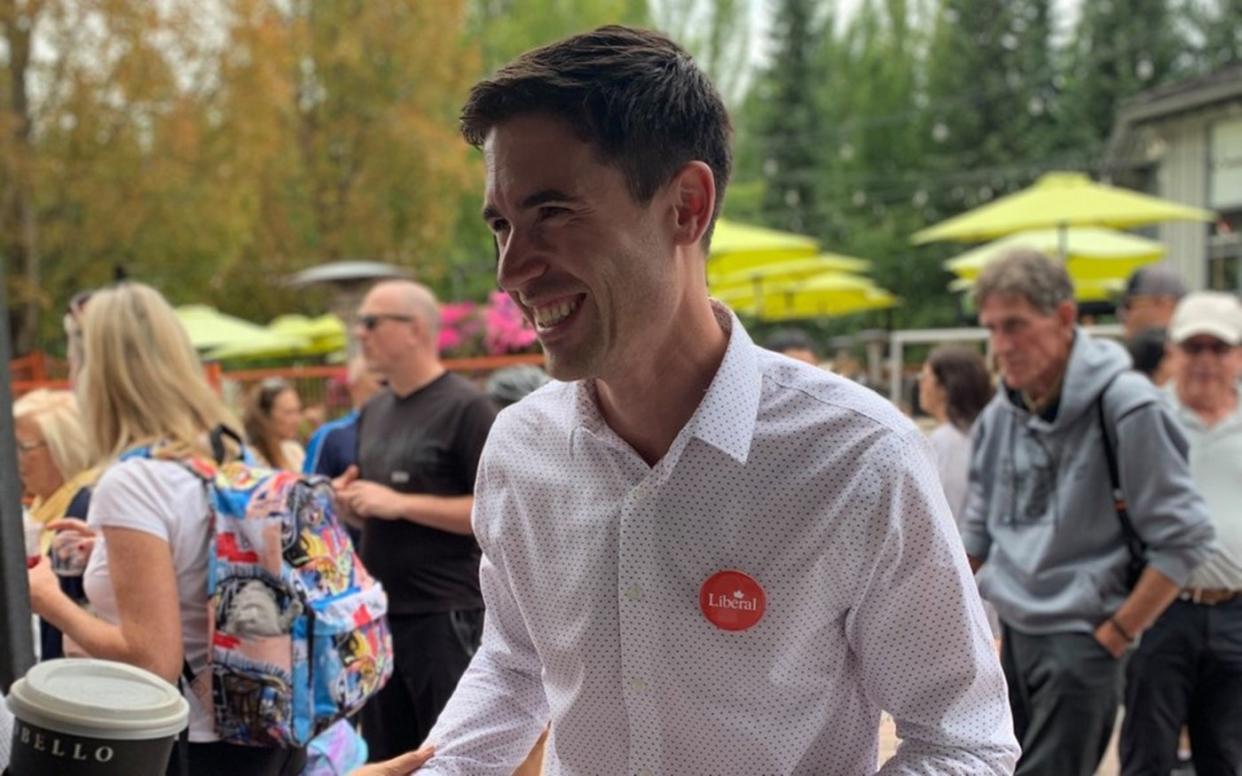'We need to find a way to work together in a better way'

The new chair of the Indigenous and Northern Affairs Committee, MP Patrick Weiler, is ready to hit the ground running. The Standing Committee on Indigenous and Northern Affairs reviews, examines and reports on issues affecting First Nations, Inuit and Métis peoples and northerners. Elected chair on June 4, Weiler served as a member of the committee from 2021 to 2023.
The local member of Parliament told Pique he has seen first-hand the injustice Indigenous people in Canada face on a daily basis.
“Prior to politics, I used to practise in aboriginal and environmental law. It’s one of the things that made me want to get involved with politics,” he said. “I wanted to improve the relationship with Indigenous Peoples across Canada. I used to work for First Nations across B.C. I saw the way that the government at the time was interacting and dealing with First Nations. I thought it was unfair.”
He said federal governments were not treating First Nations as a rights holder, though there has been great societal and political change since then.
“Our government has always said that this is the most important relationship it has,” said Weiler.
During his time as a lawyer, Weiler saw how people were excluded on decisions about projects happening on their own traditional territories. “That was under a very different legal regime that has been updated,” he said. “The adoption of UNDRIP at the provincial and federal level makes things very different. The objective not to extinguish aboriginal title through the process of negotiation is a major change. Those points show major progress, but they have happened far too slow for Indigenous people and settlers alike.”
Weiler explained his role as chair means he must ensure operations run smoothly.
"The committee hears evidence and that lived experience to see how the government can move forward in a better way,” he said. "It provides recommendations to the government. We did some really important studies like land back, Indigenous languages and emergency preparedness. I like that it’s a collaborative committee as it allows us to get work done.”
Weiller said the committee is the start of important change at the highest level.
“Over our history, the way that governments have treated First Nations is not honourable,” said Weiler. “We need to find a way to work together in a better way. I was honoured to be elected chair and I am looking forward to dealing with some legislation. We are about to start our review of C61, which is an act relating to water. We will be able to hear evidence on that legislation and make changes.”
Weiler noted the Lil’wat Nation is currently facing a major injustice when it comes to flooding. “They were moved to a reserve that is one of the most flood-prone areas in the entire valley,” he said.
When asked if one of his Indigenous colleagues would be better suited for the role, Weiler insisted he will represent his fellows to the best of his ability.
“This is something that could be the done by one of my Indigenous colleagues. You want to make sure that you do the best that you can to support,” he said. “My role is making sure that their voices are heard as much as possible. In ways, it’s more important that their voices are heard as active voices rather than as a chair.”
Weiler added he has seen Canada come on in leaps and bounds in terms of reconciliation since he was growing up. “When I was in high school, we didn’t spend much time understanding and learning the shameful history Canada has with Indigenous people,” he said. "That has very much changed now. The history is now ingrained in the curriculum. Younger generations are far more aware of what has happened. Things have changed considerably for the better.”
Weiler hopes to continue to lend a listening ear to communities in his new role.
“Far before being elected chair, I have always taken meetings with Indigenous people from across the country to see where I can support them in their needs and priorities,” he said. “That might mean change in government policies, infrastructure needs or other things. I would be interested in visiting other First Nations to see some of the challenges and opportunities there. “
The MP adds he wants to make sure the committee stays on track on the issues that matter most.
“I don’t want to see things go off the rails and for us to get distracted from the important work that we need to do,” he said. “I want to see us be able to give appropriate due diligence to legislation that comes before the committee. My hope is that we can work quickly and efficiently to give First Nations that platform so that they can be heard. We can then act on it.”
Roisin Cullen, Local Journalism Initiative Reporter, Pique Newsmagazine


